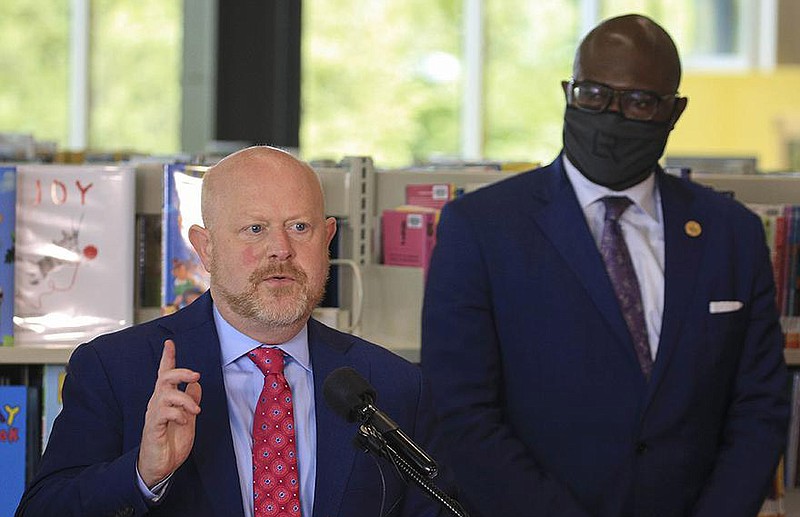City and school district officials announced Thursday that they will distribute thousands of internet hot spots to students in need in Little Rock and outlined a slate of initiatives aimed at ensuring students can participate in digital learning in a school year transformed by covid-19.
The city will purchase more than 1,000 hot spots, and the Little Rock district is purchasing 2,500 hot spots, in addition to the 500 it received from the state.
"Pretty much any student in the Little Rock School District who needs a hot spot is going to have one," said Jay Barth, the city's chief education officer.
Little Rock plans to seek reimbursement through the Coronavirus Aid, Relief, and Economic Security Act, and the school district will cover the ongoing data cost, Barth said. Little Rock Superintendent Mike Poore said the district is using federal Title IV funding for the hot spots.
[CORONAVIRUS: Click here for our complete coverage » arkansasonline.com/coronavirus]
Officials from the Little Rock district and the Pulaski County Special School District will work to get the hot spots into the hands of students and families who don't have adequate internet access, working with the schools' guidance counselors or from lists they made in the spring, Barth said.
The Central Arkansas Library System also is planning a pilot program that will allow people to check out hot spots.
Barth noted that digital equity is threefold. To participate in digital life in the 21st century, he said, people need connectivity, appropriate devices and digital literacy.
Chris Jones, executive director of the Arkansas Regional Innovation Hub, announced Thursday that the hub will provide virtual classes on computer usage and software to parents who may not be familiar with digital learning technology, in a program funded by the Schusterman Foundation of Tulsa.
"When families have access to the right tools, they not only survive, they can thrive," Jones said.
Additionally, the city plans to reopen five community centers this fall to serve as virtual learning centers for students who need a place to work with internet access. The community centers are all south of Interstate 630, where many families lack broadband, Barth said.
The city shut down all community centers in mid-March because of pandemic concerns. Once the city's technology department sets up broadband, the city will staff the five centers with employees from the Parks and Recreation Department and allow children to complete schoolwork there, Barth said.
Those five centers are Centre and University Park and Dunbar, West Central, Southwest and Stephen. A date when they will be open as virtual learning centers hasn't yet been determined.
"We are going to continue to support in a variety of ways the students and the families of Little Rock as they face distinctive challenges related to their schooling in the midst of this covid-19 pandemic," Barth said.
Mayor Frank Scott Jr. said the efforts focused on the city's most precious assets -- students -- during an unprecedented time.
"None of us expected a global pandemic," Scott said. "None of us expected what our students, our parents and our teachers have had to prepare for or what they're experiencing right now, but everything in time still goes on."

